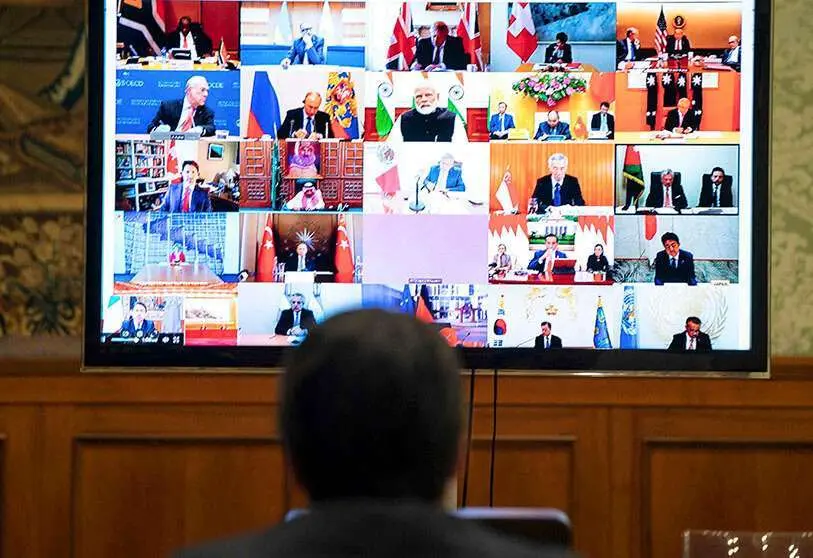The coronavirus crisis strengthens the nation-state in the face of international organizations

The pandemic caused by the coronavirus has forced a large part of humanity to change its routine from one day to the next. In order to stop the spread of the virus, people have opted for teleworking, stopping productive activity in the workplace and modifying consumer habits. Geopolitics is also undergoing transformations as a result of the pathogen. Jorge Dezcallar, a diplomat, former director of the CNI and former ambassador to Morocco, the Holy See and the United States, explained this Monday that the nation-state has emerged strengthened from this crisis in the face of international institutions during an online session organized by the Association for Progress in Management, in which Josep Piqué, former minister and businessman, also took part.
"The European Union and the UN haven't reacted as expected and have been criticized for their paralysis," Dezcallar said. Mr Piqué warned of the danger of some European governments encouraging Euroscepticism. "We need the EU, separately we would be irrelevant in the world. It’s urgent that Germany take on a leadership role together with France to strengthen the project," he said.
The EU was a political project that was created after World War II with the aim of preventing further battles on the continent. "The younger generations haven't experienced the conflicts between European nations and no longer see the usefulness of this supranational entity. The challenge that the coronavirus represents for Europe can serve to re-launch the project," explained Dezcallar, who underlined that one of the dangers for the old continent is that the EU institution will emerge from this crisis in disrepute. "The citizens have looked at their state and their health system and have felt supported. The EU has been slower to act," he said.

Although the EU has had a hard time during the health crisis, the ECB (European Central Bank) has been quick to announce numerous measures to ensure liquidity in order to help companies stay afloat so that citizens can consume. "We’ve learned from the last crisis, in 2008, and the ECB has been working to keep the euro afloat," explained Mr Piqué.
Although both have pointed out that it’s still early to establish what changes the pandemic will bring in the future, they’ve agreed that it’s the greatest challenge facing humanity since World War II. "The economic impact is going to be brutal. In addition, it’s possible that a new wave of contagion will occur once confinement is lifted. Until we have a vaccine, the uncertainty is total," the former minister said.
If the economic impact and recession are assured in developed countries, in sub-Saharan Africa or in Latin America, the economic consequences of the pandemic could be catastrophic. "ECLAC has already warned that the subcontinent will fall back on the poverty reduction goals it had set and that it will be a new lost decade," said Piqué. "They are already suffering from capital flight, tourism has plummeted and raw materials are no longer in demand. To this we must add the huge weight of the informal market," added Dezcallar, who also described the attitude of Mexico and Brazil in containing the virus as irresponsible.
Another of the consequences that both speakers have pointed out that this crisis may bring is the weakening of multilateralism, the joint activity of several countries to face conflicts. "Before the pandemic, it was already showing signs of exhaustion, although COVID-19 may give it the boot," the diplomat detailed.

The relationship between the United States and China will also be more complex after this health crisis. "The concept of China as a factory of the world is going to change. They are coming out of this pandemic with a very significant technological power. This is what worries the United States, that the Asian giant can confront it and dispute its hegemony", specified Piqué. "The conflict in Syria shows that we are already beginning to live in a post-Western world. The decisions in that war are being made by Russia, Turkey or Saudi Arabia, non-Western powers," the former minister stressed.
In order for Europe to find its place in the new world order, Dezcallar has emphasized the need to strengthen coordination between its members, to have a single voice in the rest of the world and to strengthen its military force. Otherwise, he warned that we would enter into geopolitical irrelevance. "If we are irrelevant in the world, our welfare will also be irrelevant," he concluded.










